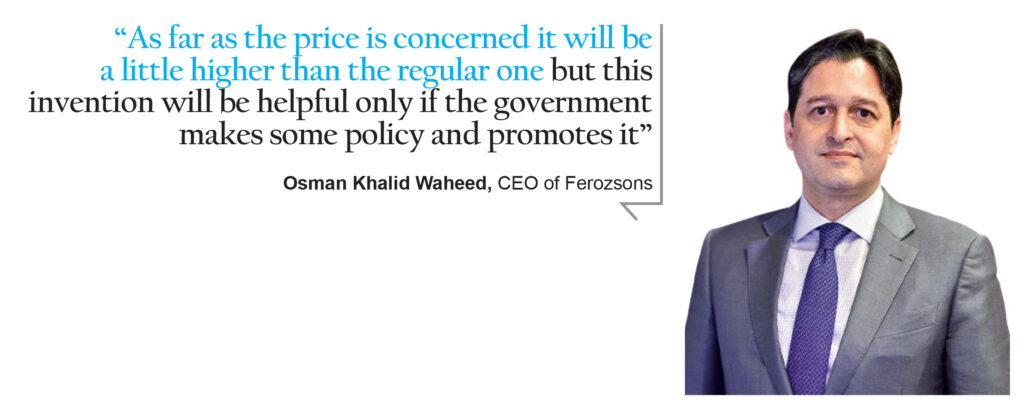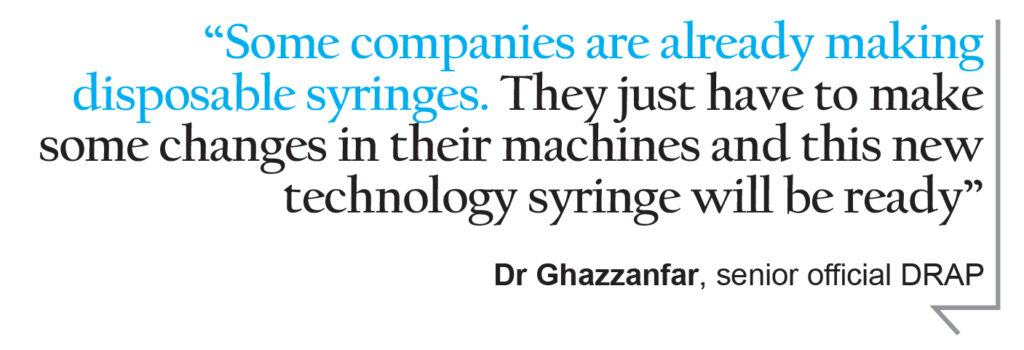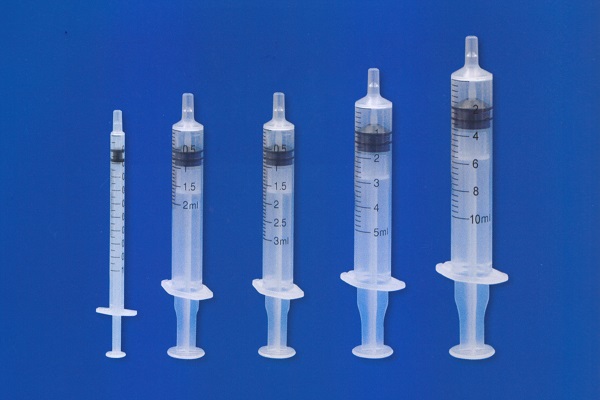When there was an alarming spread of HIV in Pakistan back in 2019, one of the major factors that came to light was the prevalence of quack doctors. According to the Pakistan Medical Association (PMA), there are more than 600,000 quacks currently practicing in the country with more than 80,000 based in Punjab province alone. Another reason that came under scrutiny was the usage of sub-standard syringes. Combined, these two factors make a deadly combination.
You don’t have to look far to find either quackery or bad medical practice in Pakistan. Government hospitals are in shambles, and in urban centers, you will find a plethora of private clinics. There are two or three small clinics open on every street corner, and those are the ones that have qualified doctors that have at least completed their MBBS. Since there is no government agency that effectively monitors private clinics, anyone can start one up and claim to be a doctor. When contacted for this story, some Lahore district administration officials have even admitted that most of their field staff are in alliance with the quacks and take bribes for them, and that the administration is powerless to stop them. On average, the district administration seals more than 400 such fake clinics on a monthly basis, but they either pop up somewhere else or reopen in that same spot and continue on with impunity for many months.
A health department official told Profit that a common practice in Pakistan is that after completing an MBBS and a two-year RMO course, most doctors open private clinics to increase their income. “These clinics, opened in one or two rooms or in a small shop, are actually factories that spread diseases. There is a shortage of space in these clinics and their condition is such that health and hygiene are not far away. Then there are the clinical medicines used in it, the quality of which, apart from international standards, can be said to be the worst at the local level as well and most of all, there is a tendency not to sterilize the glass syringes used in these clinics or to order highly substandard disposable syringes from the market and implant them in patients.”
Essentially, what we have going on here is that there are countless quacks pretending to be doctors treating patients in small, dingy clinics. The clinics that are actually operated by qualified doctors are in putrid conditions and end up causing more damage than good. However, people tend to go to these because the doctors there charge less both for their services and the syringes. The medicines they use are also questionable, but for the purposes of this report, we are sticking to the substandard syringes and needles that are used.
Where the syringes come from
In the mid 200s, there was a serious move to stop sterilizing syringes and instead use single use syringes and break their needles after they have been used once to halt the spread of viruses like HIV. Another reason for this was that when hospitals would eventually dispose of the syringes, people would buy these from them, recycle them, repackage them and sell them to these shanty clinics. The scary thing is that this practice still continues to this day, because single use syringes are still not widespread, especially in Punjab.

“This mafia buys these used syringes which are washed or melted down and then re-syringed and then the same syringes are delivered to hospitals and clinics. There is a profit of billions of rupees in this nefarious business but the germs of dangerous diseases are also in the number of billions but it does not mean anything to anyone,” said the source in the district administration.
The official revealed that the World Health Organization (WHO) conducted a study in 2004 on complaints of substandard syringe sales in Pakistan and found 34 per cent of companies to be substandard. For this study, WHO purchased syringes from 30 companies across Pakistan which identified substandard companies. To address all these issues, the government of Pakistan had decided to introduce auto-disabled syringes in the country a year and a half ago. Dr. Zafar Mirza, the then Special Assistant to the Prime Minister for Health, claimed that the government will buy 50 percent auto-disabled syringes during the fiscal year 2020-21 at the government level. However, the decision to introduce these modern syringes was taken by the government due to the Larkana AIDS (Acquired immunodeficiency syndrome) cases.
An auto-disable syringe is an automatic syringe that, when injected, clicks the lock at the end, after which the syringe becomes unusable. The syringe was developed in 1986 under the special guidance of the WHO and in accordance with the WHO’s 2015 guidelines, all member states were advised to use safe syringes. According to official figures, the highest number of injections in the world is given to patients in Pakistan, and 8 to 10 injections are given to each person in Pakistan annually while 95 per cent of the injections given to Pakistani patients are unnecessary.
Stab happy country
According to the General of Pakistan Medical Association, Pakistan is one of the countries where injections are used the most. The association in its report claimed that about 450 million syringes are imported annually, of which 30 million are used annually for vaccines and 10 million for insulin, while the domestic production of syringes is 744 to 804 million annually.
Now, if we look at the government and association statistics, we will see that this is a huge business at the level of medical devices. Profit has conducted a survey on the current trend of old technology syringes market and the trend of prices and supply and demand with the advent of modern technology syringes market according to which, experts are happy with this technology, but in spite of high-sounding claims, it has not yet come to Pakistan in practice.
However, an official of the Federal Health Department informed Profit that importers have been given some time to switch from traditional syringes to modern syringes as the Ministry of Health has banned the import of old technology syringes as well as their manufacturing from April 1, 2021. One wholesale dealer of medical devices, Muhammad Faizan, who operates in the old Lohari market (which is one of the wholesale market of medical devices and medicines in Lahore) informed Profit that the business of syringes is undoubtedly a big business, and that auto-disabled syringes have been rumoured to hit the market for a while now, but are yet to arrive.
“These syringes have not yet hit the market, but given their demand, it can be said that the price of syringes is likely to go up if they are not supplied properly in the market. This is because investors already dealing with this business in the market have accumulated a large stock of syringes. Because it is a best-selling item, customer demand cannot be met unless it has a large stock,” Faizan explains.
Syringes are supplied from these wholesale markets to almost all public and private hospitals, medical stores, and clinics in Punjab. Now, if new technology syringes come on the market all of a sudden, the old stock is in danger of being lost and the investors do not want to let this loss happen. “This is why these mafias will do the opposite of what is right. They will artificially shorten supply for the new technology syringe by not selling them until the old stock is sold. While they sell their old stock, the demand for auto-syringes will continue to increase and the price will increase. Then, when their old stock is finished, that is when they will pull out the new tech syringes they had been hoarding and start selling them.”
The anatomy of a syringe
The syringe may seem like a very simple contraption, but it has behind it any complications and kinds. As Faizan explains, there are different types of syringes for sale in the market. These syringes are sold according to their containers starting from 1cc up to 60cc. “There are regular in-demand syringes in the market. A syringe consists of three parts. First and foremost, and the most important, is the needle which makes contact with the surface. Then there is a hollow container which is used to identify the size of the syringe and in the last comes the plunger which pushes or sucks the fluid in the container via needle. An important fact is that cc in a syringe is equivalent to ml (milliliter). There is a huge conflict in the market between the local manufacturing companies,” he explains.

The quality of locally manufactured syringes is low, which is why they are not exported either. Some good quality and well-known local syringes include Zindagi, Trust, and Shifa. In imported syringe brands include BD, A froze and Sultan son but the real competition is between rate and quality,” he said.
Similarly, Muhammad Farhan, who is a pharmacy manager at Mayo Hospital (which is the largest hospital in Pakistan) it was hearteing that Pakistan was somewhat independent in manufacturing syringes. However, the situation of medical supplies has been drastic ever since the initial months of the Covid-19 pandemic. “Many people in Pakistan are investing and focusing on syringe manufacturing, as there is always rising demand in the market. Inject, Shifa and Master are among the well-known local syringe manufacturers. Rate and Quality are two main things in this product. As far as it looks, there is a certain difference in quality. BD, Sultan son and Afroze are being imported in bulk in Pakistan whereas one syringe of BD in wholesale is being sold at 25 rupees and in retail at 30 rupees.”
Compared to these prices, locally manufactured syringes are being sold in the market starting from 3 rupees up to 7 rupees. Locally, this medical device is manufactured somewhere on the outskirts of Faisalabad and in Karachi. These syringes cannot be exported anywhere out of Pakistan as local manufacturers would not be able to compete at the rate price of China in the international market. Now if we look at the difference between the price of local and imported syringes, then the price of imported syringes is much higher. One of the main reasons for this is the quality of the syringes manufactured here.
However, when asked about the used syringe, Farhan expressed grief over the situation and said that regulatory authorities are responsible to control and make some strategy for used syringes. I’ll tell you something, we even get customers who think they can get used syringes from the wholesale market. Almost three years back a question erupted about the scandal of selling used syringes after repacking them. No doubt, the department is making policies and enforcing them. But in big cities like Lahore, Islamabad and Karachi doctors are vigilant in this matter. Doctors even open the syringe out from packing in front patients to ensure all types of safety. However, these are doctors in posh urban centers, things in rural areas get quite nasty and unhygienic.”
This makes some sense. For people that are barely making ends meet, when a man says he is a doctor and offers to treat them with a Rs 2 syringe, they will run towards him instead of going to the office of the doctor that treats them with a Rs 30 syringe in some private hospital that has all kinds of other costs associated with it as well.
Generally, doctors in Pakistan strongly recommend the syringe of BD to the patients of diabetes. As the sterilizing syringe of BD is completely reliable. The government purchases at a lower rate in tender, for instance, one million syringes at Rs 2 each. In this condition the quality of the syringe will be understandable. There is a rumor of one time usable syringe in the market and it can prove to be helpful especially in the areas where transmitted diseases are found,” he concluded. An importer of disposable syringes informed Profit that the situation of the Pakistan economy is already in critical condition as the inflation rate in Pakistan increased rapidly.
“The inflation is disturbing not only our market, but the entire economy. In recent months, Pakistani currency rupee has lost huge worth. It is directly or indirectly affecting the common man of Pakistan. As the prices of all things are getting higher day after day likewise the syringes currently available in the market have become a little costly because of inflation and vendors and pharmacies are already unpleasant at this. In this scenario if any new technology is introduced things will become uglier as that technology will not launch at the same rate in the market, which will become a burden for patients.”
What will happen if the syringes come out tomorrow?
The importers will simply dump all of the old stock of syringes and the new ones being imported into the market. Currently, the average price of the conventional disposable syringe of 5 ml is Rs4.72 (inclusive of all taxes) and 3ml is Rs4.59 (inclusive of all taxes), whereas the average price of 5ml auto-disable syringe is Rs7.35 (inclusive all taxes) and 3ml is Rs7.09 (inclusive of all taxes). This means that an auto-disable syringe of 5ml is 55pc costlier than the conventional disposable syringe, whereas a 3ml syringe is 54pc costlier than the conventional syringe. The government should exempt importers and manufacturers from taxes on the manufacture and import of auto-disabled syringes as the waiver of taxes would not only improve manufacturing technology (shift from conventional to auto-disable syringes) in the country but would also ensure availability of auto-disable syringes at affordable prices to the end-user.
Osman Khalid Waheed, CEO of Ferozsons Laboratories Limited speaking to Profit said, that the new tech being introduced in Pakistan named Auto-Disable syringe could be a turning point in Pakistan medical device industry. “As per various surveys, the major cause of widespread disease in certain areas is syringes. Currently in use syringes are refillable and reusable which a negative point of this classical device is. But with the advancement in every field, one time usable syringe has been developed in Pakistan. Now it is in its manufacturing process and soon will be available in markets. The sole purpose of this device is to stop certain widespread transmitted diseases but it can only be possible with the backing of the Government and certain relevant departments,” he said. “As far as the price is concerned it will be a little higher than the regular one but this invention will be helpful only if the government makes some policy and promotes it.”
“The newly invented syringe is here for the betterment of people. It is easy to say that syringes are little medical devices of rupees 5 or 7 rupees, but they have massive implications for public health. There are certain people who collect the used devices, repack them and then sell them for a little margin of profit. These goons play with the lives of others. To avoid this very trouble, one time syringes are being introduced to avoid HIV, Hepatitis and other transmittable diseases. In order to control the situation departments have to intervene enforcing strict policies and regulations. All the used medical stuff must be collected and disposed off with strict care including special collecting cars.”
Dr. Ghazanfar, a senior official of the Drug Regulatory Authority of Pakistan (DRAP), believed that the companies that were already making traditional syringes in Pakistan would be the ones to change their technology.“Some companies are already making disposable syringes. They just have to make some changes in their machines and this new technology syringe will be ready,” he said.
“These companies already have contacts in the open market, so if it is said that the advent of new technology will make a difference to their business, it will not happen at all. This business requires a huge investment and some new players are also looking to set up manufacturing plants for these syringes and their work is in the final stages. Since the motives behind bringing this technology are very good and Pakistan will be the first country where this technology will be used, we need to consider the positive aspects of it,” he said.
When asked about the risk of loss of old stock and shortage of syringes due to the arrival of new syringes in the market, Ghazanfar said that this was absolutely possible, because when new syringes come on the market their demand will be high, which means that their price may go up or there may be a shortage in the market, but this situation will not last long and it will be overcome in a few months. DRAP’s field staff are working diligently in the market and obviously when these syringes are brought to market, DRAP will also enforce their use. Our teams will also keep an eye on the supply and demand of these syringes in the market and there will be a complete check on its price control,” he claimed.










+19729616613